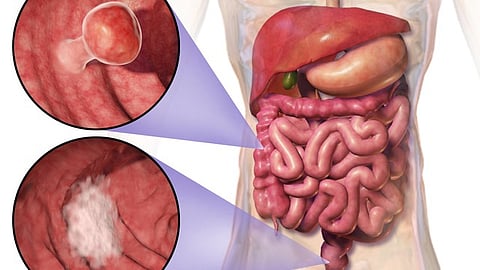

Research from the University of California, Irvine has revealed how disruption of the circadian clock, the body’s internal, 24-hour biological pacemaker, may accelerate the progression of colorectal cancer by affecting the gut microbiome and intestinal barrier function. This discovery offers new avenues for prevention and treatment strategies.
The study, published online today in the journal Science Advances, offers a more comprehensive understanding of how important changes occur in the function and composition of the gut microbiome when the circadian clock is disturbed in the presence of colorectal cancer.
Previous research has shown that disturbances to the circadian clock can influence the progression of colorectal cancer, but until now, how the biological clock and cancer impact the gut microbiome was unclear.
Researchers also identified notable alterations in the microbial pathways involved in the metabolism of nucleic acids, amino acids and carbohydrates. These functional changes were linked to reduced levels of intestinal mucus, which normally protects the gut lining from harmful bacteria, suggesting that the circadian clock is crucial for maintaining barrier integrity. Increased permeability of the intestinal lining allows toxins and bacteria to enter the bloodstream, potentially accelerating cancer progression.
“While these findings are important, more work needs to be done,” Masri said. “In particular, we now want to know if changes in the timing and abundance of certain gut bacteria could directly lead to colorectal cancer development over time. Long-term studies will be critical in determining whether circadian misalignment drives cancer and how we might prevent it in the future. Deeper insights into how the body’s internal clock shapes the gut’s ecosystem could pave the way for treatments that not only address cancer but also improve overall gut health.”
Newswise/SP
